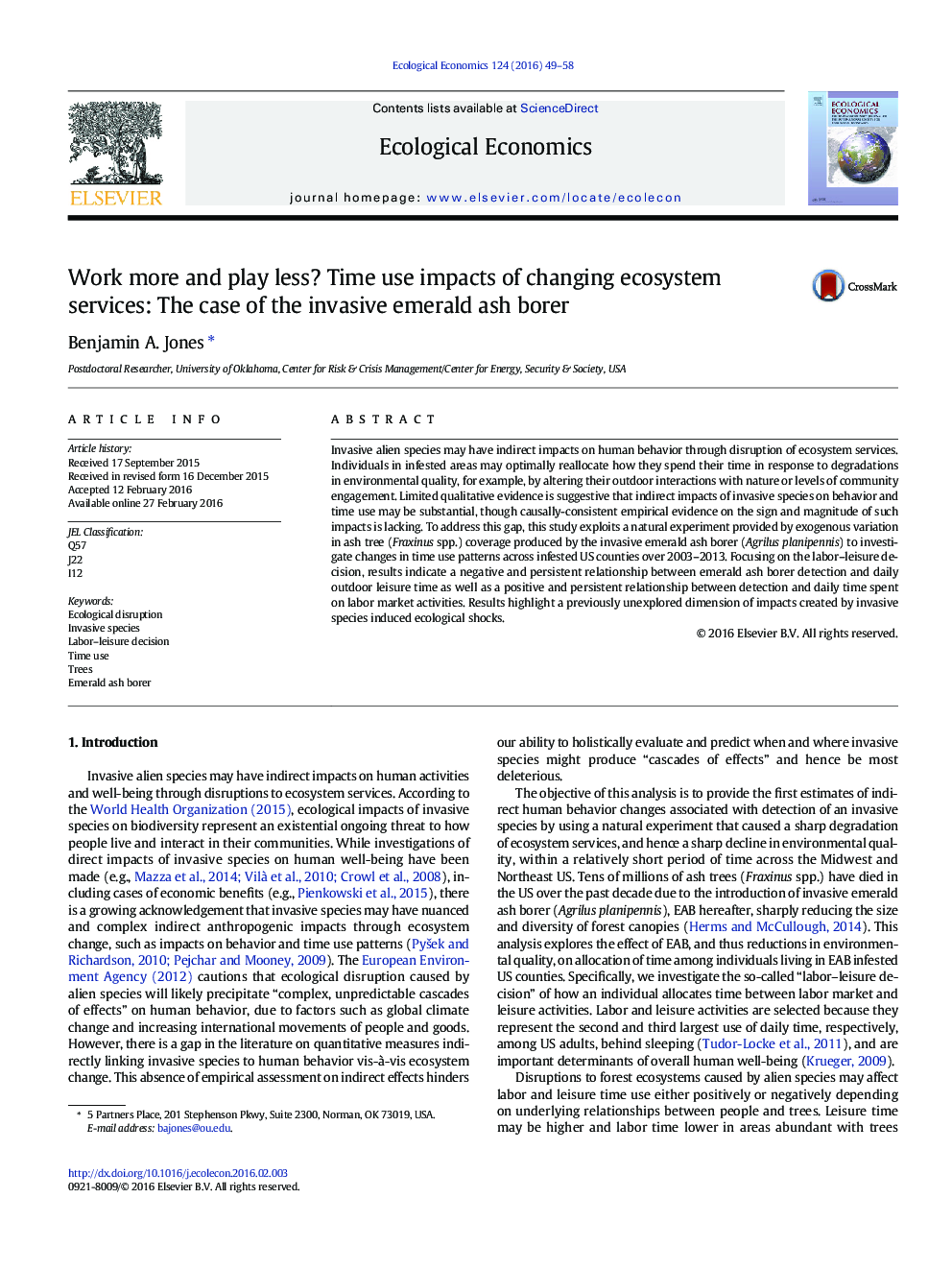| Article ID | Journal | Published Year | Pages | File Type |
|---|---|---|---|---|
| 5049020 | Ecological Economics | 2016 | 10 Pages |
â¢Invasive species may affect human behavior through disruption to ecosystem services.â¢Invasive emerald ash borer (EAB) provides a novel natural experiment.â¢Labor time is higher and leisure time is lower after EAB detection.â¢Time use effects persist for more than two years.â¢Results highlight the importance of considering indirect impacts of invasives.
Invasive alien species may have indirect impacts on human behavior through disruption of ecosystem services. Individuals in infested areas may optimally reallocate how they spend their time in response to degradations in environmental quality, for example, by altering their outdoor interactions with nature or levels of community engagement. Limited qualitative evidence is suggestive that indirect impacts of invasive species on behavior and time use may be substantial, though causally-consistent empirical evidence on the sign and magnitude of such impacts is lacking. To address this gap, this study exploits a natural experiment provided by exogenous variation in ash tree (Fraxinus spp.) coverage produced by the invasive emerald ash borer (Agrilus planipennis) to investigate changes in time use patterns across infested US counties over 2003-2013. Focusing on the labor-leisure decision, results indicate a negative and persistent relationship between emerald ash borer detection and daily outdoor leisure time as well as a positive and persistent relationship between detection and daily time spent on labor market activities. Results highlight a previously unexplored dimension of impacts created by invasive species induced ecological shocks.
